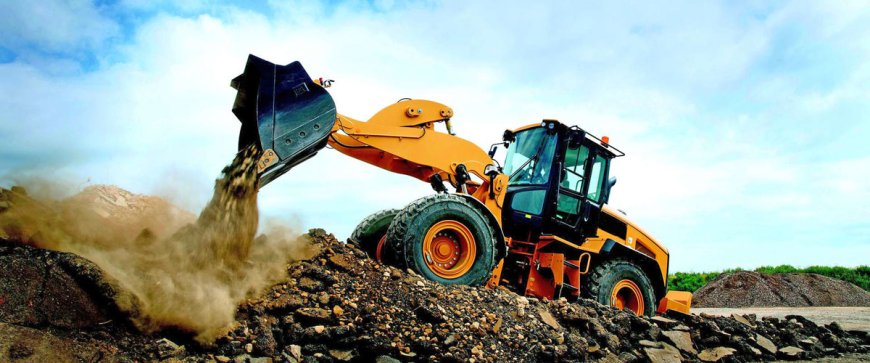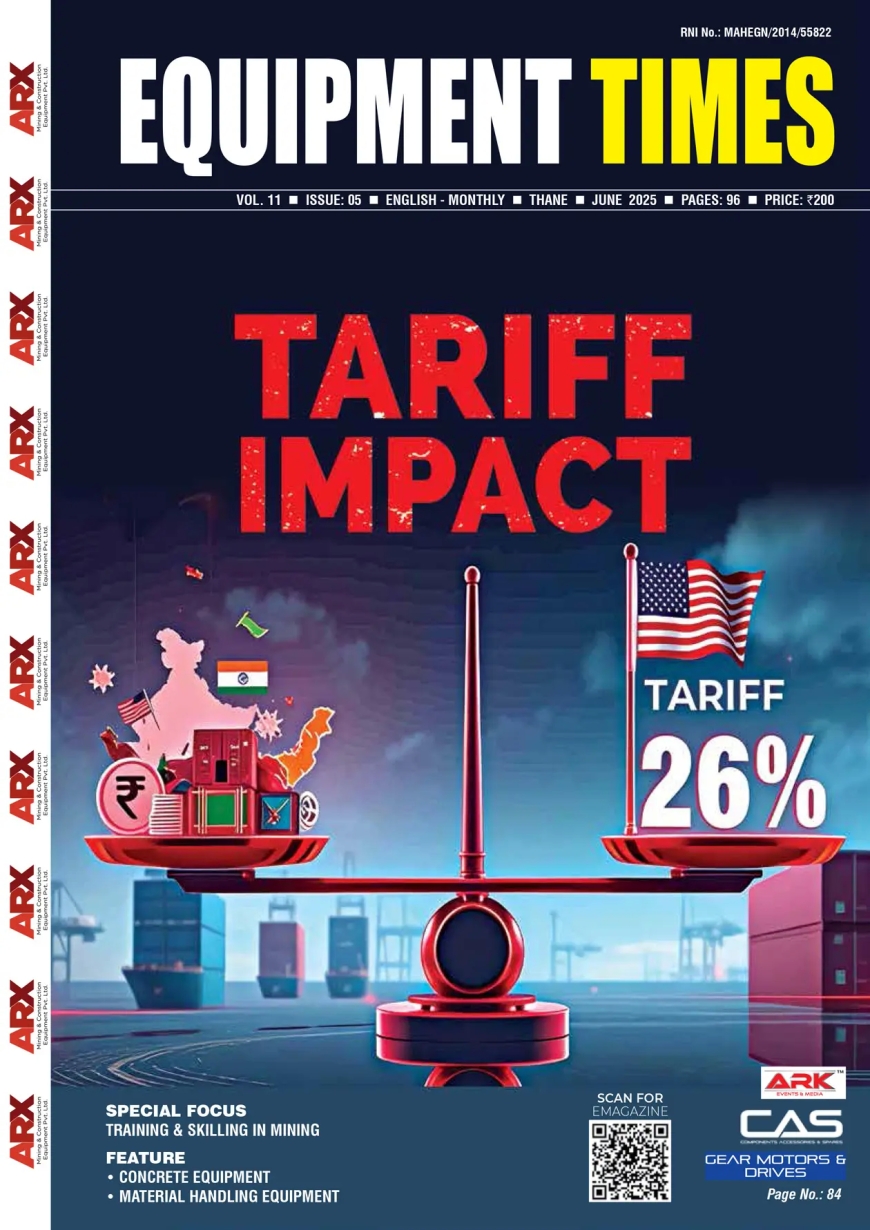The RISING TIDE of RENTAL CE in INDIA

India’s construction industry is on an unprecedented growth trajectory. As urbanization accelerates and infrastructure projects proliferate, the demand for construction equipment has surged. Amidst this backdrop, the rental construction equipment industry is emerging as a vital player, offering a cost-effective, flexible, and efficient alternative to outright equipment ownership.
Equipment Times explores the dynamics driving the rental market, its benefits, challenges, and future prospects.
The rental construction equipment industry in India is on the cusp of a transformative era, driven by rapid urbanization, infrastructure development, and the increasing need for cost-effective and flexible construction solutions. As the nation embarks on ambitious projects ranging from smart cities to high-speed rail networks, the demand for rental construction equipment is soaring, marking a significant shift in how the construction industry operates.
Over the past decade, the rental construction equipment sector in India has witnessed robust growth. The market size, estimated to be around INR 250 billion in 2020, is projected to grow at a compound annual growth rate (CAGR) of 7-8% over the next five years.
The Indian government’s focus on infrastructure development, including roads, highways, ports, and airports, has created a substantial demand for construction equipment. Rental services provide a flexible and cost-effective solution to meet this demand.
Renting equipment offers significant cost advantages over purchasing. Construction companies can avoid the high upfront costs, maintenance expenses, and depreciation associated with owning equipment. This financial flexibility is particularly beneficial for small and medium-sized enterprises (SMEs).
The integration of advanced technologies in rental equipment, such as telematics, GPS tracking, and IoT, has enhanced operational efficiency and safety. These innovations have made rental services more attractive to construction firms seeking state-of-the-art machinery without the burden of ownership.
India’s urban population is expected to reach 600 million by 2030, necessitating extensive urban infrastructure development. The government’s Smart Cities Mission aims to create 100 smart cities, further driving the demand for construction equipment on a rental basis.
The Growth Drivers
Several factors are fueling the expansion of the rental construction equipment market in India:
Cost-Effectiveness: Purchasing heavy machinery involves substantial capital investment, which can be prohibitive for many contractors, especially small and medium-sized enterprises (SMEs). Renting equipment mitigates this financial burden, allowing companies to allocate funds more strategically.
Project-Based Demand: Construction projects often have varying equipment needs at different stages. Renting provides the flexibility to access specific machinery as required, ensuring optimal utilization and efficiency.
Maintenance and Upkeep: Ownership of construction equipment entails ongoing maintenance, repairs, and storage costs. Rental companies absorb these responsibilities, allowing contractors to focus on core project activities.
Technological Advancements: Rapid technological advancements render equipment obsolete faster than ever. Renting enables access to the latest machinery without the risk of technological redundancy.
Government Initiatives: Infrastructure development is a key focus of the Indian government, with ambitious projects like Smart Cities, Bharatmala, and Sagarmala driving demand for construction equipment. The rental market is poised to benefit from these initiatives as contractors seek cost-effective solutions.
Market Dynamics
The rental construction equipment market in India is highly fragmented, characterized by numerous small and medium-sized enterprises alongside a few large players. Key segments within the market include earthmoving equipment, material handling equipment, and concrete and road construction equipment. Earthmoving equipment, particularly excavators and loaders, accounts for the largest share, driven by extensive use in urban development and large-scale infrastructure projects.
Benefits of Rental Equipment
Flexibility: Rental agreements can be tailored to the specific duration and requirements of a project, offering unmatched flexibility.
Access to Expertise: Rental companies often provide trained operators and technical support, ensuring optimal equipment performance and safety.
Scalability: Contractors can easily scale their equipment fleet up or down based on project demands, avoiding the financial strain of owning idle machinery.
Cash Flow Management: Renting helps manage cash flow more effectively by converting a large capital expenditure into a manageable operational expense.
Challenges
Despite its advantages, the rental construction equipment industry in India faces several challenges:
Market Fragmentation: The presence of numerous small players leads to inconsistent service quality and pricing.
Regulatory Hurdles: Navigating regulatory requirements and obtaining necessary permits can be cumbersome, affecting the ease of doing business.
Logistics and Transportation: Efficiently transporting heavy machinery to diverse and often remote project sites remains a logistical challenge.
Awareness and Perception: While growing, the acceptance of rental equipment is still limited in certain regions due to traditional preferences for ownership and concerns over equipment availability and reliability.
Future Prospects
The future of the rental construction equipment industry in India appears promising, bolstered by several positive trends:
Digital Transformation: The adoption of digital platforms and IoT (Internet of Things) in equipment management is enhancing operational efficiency and transparency.
Sustainability Focus: With increasing emphasis on sustainable construction practices, rental companies are investing in eco-friendly equipment, aligning with global green construction trends.
Strategic Partnerships: Collaborations between rental companies and equipment manufacturers are fostering innovation and expanding service offerings.
Market Consolidation: As the industry matures, market consolidation is likely, leading to improved service standards and competitive pricing.
The rental construction equipment industry in India is poised for significant growth, driven by the twin imperatives of economic efficiency and operational flexibility. As the construction sector continues to evolve, rental services will play an increasingly critical role in enabling contractors to meet the demands of modern infrastructure projects.
Industry gives a thumbs up…

Rajesh Agarwal, Managing Director, Jindal Infrastructures, said, “For more than six inspiring decades, Jindal Infrastructures Private Limited has successfully reined the Indian infrastructure industry. Being one of the pioneers in equipment leasing in India, the company has bagged remarkable goodwill and reception in the market through immense hard work and dedication.
We are an ISO 14001:2004 & ISO 9001:2000 Certified Company expertise providing Two Divisions of work i.e., Providing Construction Equipment on Rental operation since 1962 & also providing Pile & Foundation Jobs. The mission “Viksit Bharat 2047” by our Honourable Prime Minister Shri Narendra Modi Ji gives a very positive uptrend in the equipment rental market. So, the next 5 years is very crucial for all the rental companies as there will be whole load on inquiries for various equipment in all sectors of infrastructure development.”

Capt. Sandeep Anand, CEO, Premier Heavy Lift (PHL), said, “In a testament to its dedication to progress and distinction, PHL achieved a momentous milestone in its inaugural year by securing the prestigious 3rd spot among crane-owning companies in India and ranking 71st globally in the esteemed International Cranes and Specialized Transport - global crane rankings for 2024. This remarkable recognition underscores PHL’s commitment to expansion, innovation, and industry leadership. Technology has played a transformative role in the rental equipment industry, revolutionizing operational processes and enhancing overall efficiency. Premier Heavy Lift (PHL) has embraced technological advancements to stay ahead of the curve and provide innovative solutions to its clients.”

Manish Sharma, Business Head, Equiphunt, said, “One of the current trends in the construction and infrastructure equipment rental market is the increasing demand for specialized vertical equipment. This trend is particularly evident at construction sites, where the cost of advanced machinery is substantial. Many contractors are opting to rent equipment on a just-in-time basis rather than committing to ownership. This shift not only helps in managing costs more effectively but also ensures access to the latest technology without the burden of maintenance and depreciation expenses. As projects become more complex and timelines more stringent, the flexibility and efficiency offered by equipment rental services are becoming increasingly attractive to industry professionals. A significant challenge faced by rental companies in the construction equipment industry is the mental fatigue experienced by operators due to prolonged seated work.”

Deepak Vig, COO, Barkat Cranes & Equipment, said, “Our primary service is crane rental, which constitutes about 90% of our operations. This includes both telescopic and crawler cranes. Additionally, we offer forklift rentals, which make up about 10% of our services. Recently, we’ve expanded to provide larger forklifts on long-term rentals to industries outside the port, with around 20 to 35 forklifts currently in use. These larger forklifts are comparable in terms of rental value to our cranes. We have clients, such as steel companies, that require both cranes for project work and forklifts to handle steel coils or plates, allowing us to offer an integrated service.”








